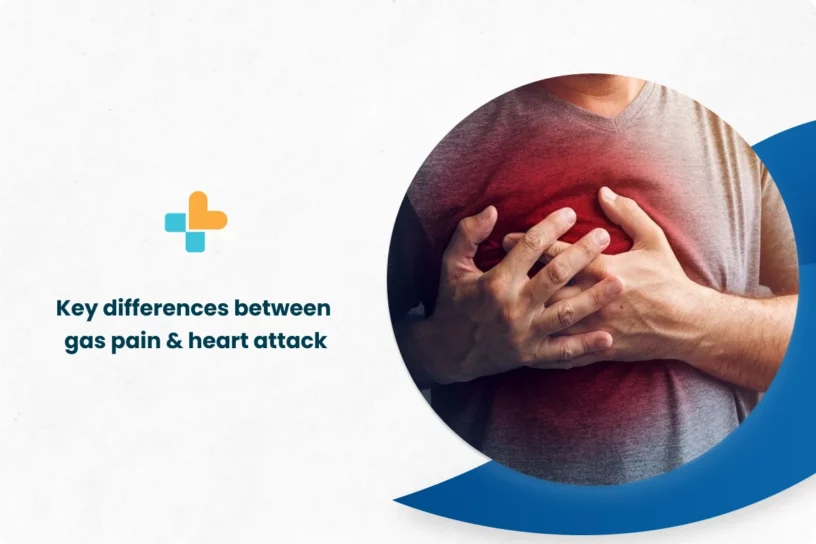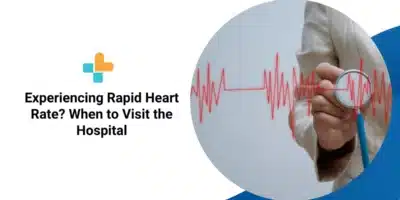Introduction
Gas pain and heart attack are two distinct medical conditions that can cause discomfort and pain in the chest. While the symptoms of gas pain and heart attack can be similar, the causes and treatments of these conditions are different. It is important to be able to distinguish between the two so that the appropriate treatment can be provided.
What you need to know about gas pain and heart attack
Gas pain is a common condition that is caused by the accumulation of gas in the stomach and intestines. It can cause discomfort, bloating, and pain in the abdomen and chest. Heart attack, on the other hand, is a serious condition that occurs when the blood flow to the heart is blocked. It can cause chest pain, shortness of breath, and weakness.
Symptoms of gas pain and heart attack

Gas pain can cause discomfort, bloating, and pain in the abdomen and chest. The pain may be sharp or dull and may be accompanied by burping or flatulence. Heart attack can cause chest pain, shortness of breath, and weakness. The pain may be described as a squeezing or pressure sensation and may radiate to the jaw, neck, or arm.
Causes of gas pain
Food sensitivity and intolerances
Food sensitivity and intolerances can cause gas pain by triggering inflammation in the gut and disrupting the balance of gut bacteria. Common food triggers include gluten, lactose, and FODMAPs.
Food poisoning
Food poisoning can cause gas pain by causing inflammation and irritation in the gut. Symptoms usually begin within hours of eating contaminated food.
Inflammatory conditions
Inflammatory conditions such as Crohn’s disease and ulcerative colitis can cause gas pain by causing inflammation in the gut.
Irritable bowel syndrome
Irritable bowel syndrome (IBS) is a chronic condition that can cause gas pain by altering the balance of gut bacteria and disrupting the normal movement of the intestines.
Gallbladder diseases
Gallbladder diseases such as gallstones and cholecystitis can cause gas pain by blocking the flow of bile from the gallbladder.
Causes of heart attack
The most common cause of heart attack is the buildup of plaque in the coronary arteries, which can restrict or block the flow of blood to the heart. Other causes of heart attack include high blood pressure, high cholesterol, smoking, diabetes, and a family history of heart disease.
Gas pain in the chest vs. heart pain
Gas pain in the chest is usually described as a sharp or dull discomfort that may be accompanied by burping or flatulence. The pain is typically located in the upper abdomen or upper chest, and may radiate to the back or shoulder. Heart pain, on the other hand, is typically described as a squeezing or pressure sensation that may radiate to the jaw, neck, or arm. It is important to note that heart pain can be felt in the upper abdomen or upper chest, so it’s essential to distinguish between the two by considering other symptoms and risk factors.
Natural remedies for gas pain & heart attack
For gas pain, natural remedies include drinking peppermint tea, eating ginger, taking probiotics, and practicing yoga. For heart attack, natural remedies are not recommended and immediate medical attention is required.
What to avoid
To avoid gas pain, it’s important to avoid foods that trigger inflammation and disrupt the balance of gut bacteria, such as gluten, lactose, and FODMAPs. To reduce the risk of heart attack, it’s essential to avoid smoking, excessive alcohol consumption, and a diet high in saturated fat, cholesterol, and sodium.
Other treatments for gas pain & heart attack
For gas pain, over-the-counter antacids and gas-relieving medication can provide relief. In more severe cases, a healthcare professional may prescribe medication to reduce inflammation or improve gut motility. For heart attack, immediate medical attention is required, and treatment may include medication to dissolve blood clots, surgery to open blocked vessels, or angioplasty to widen narrowed vessels.
Potential complications
Gas pain usually clears up on its own, but in some cases, it can be a symptom of a more serious condition. Complications of heart attack include heart failure, arrhythmia, and death. It is important to seek immediate medical attention if you suspect a heart attack.
Conclusion
Gas pain and heart attack are two distinct medical conditions that can cause discomfort and pain in the chest. While the symptoms of gas pain and heart attack can be similar, the causes and treatments of these conditions are different. It is important to be able to distinguish between the two so that the appropriate treatment can be provided. It is essential to be aware of the symptoms of each condition and to seek medical attention if you suspect a heart attack.
Our Hospital Locations
Cardiology Surgery Hospitals in Chandigarh | Cardiology Surgery Hospitals in Bangalore | Cardiology Surgery Hospitals in Jaipur | Cardiology Surgery Hospitals in NCR | Cardiology Surgery Hospitals in Hyderabad
Our Doctors
Cardiology Surgery Doctors in Chandigarh | Cardiology Surgery Doctors in Bangalore | Cardiology Surgery Doctors in Jaipur | Cardiology Surgery Doctors in NCR | Cardiology Surgery Doctors in Hyderabad
About the Author

Dr. Magesh Balakrishnan
Dr. Magesh Balakrishnan is a renowned cardiologist currently practicing at Ayu Health, Bangalore.
He has 16 years of experience in this field. He has excellent skills in performing all cardiac diagnostic procedures/ tests. He has performed emergency and elective angiographies and angioplasties, device implantation (Pacemaker, AICD & CRT)




